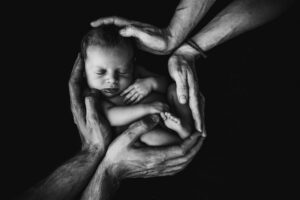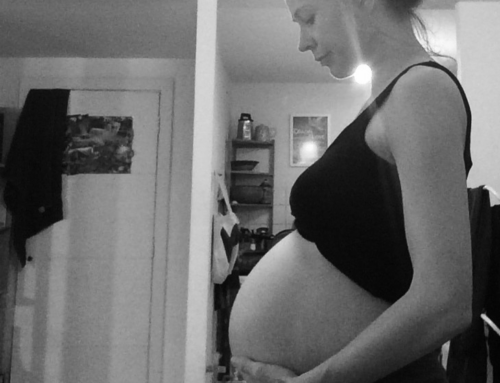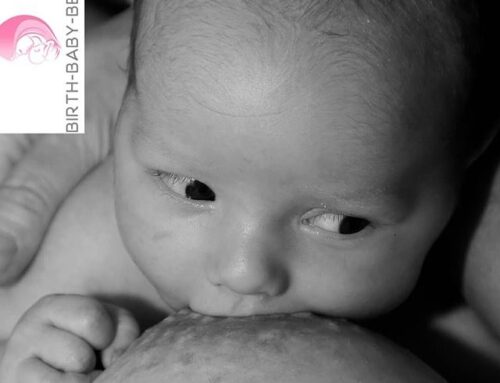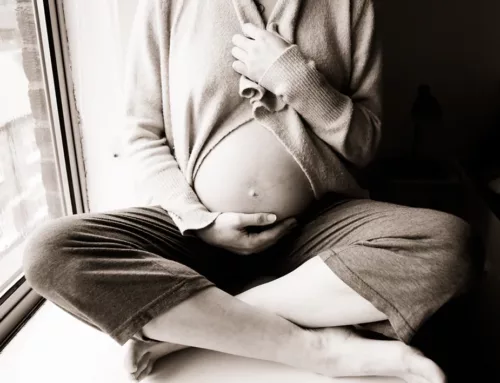
How can a doula support you after the birth of your baby?
What is a postnatal doula?
A postnatal or postpartum doula can be defined as a non-medical professional who provides support to new parents and their families. Their focus includes post-birth recovery, changing family dynamics and newborn care. They provide informational, practical, emotional and physical support. It can be difficult to define the role as it is ever-changing and constantly evolving according to the needs of the family at a particular time. Oftentimes it requires a careful observation and response to what is happening in real time, possibly throwing well laid plans out the window after a sleepless night or in response to something unexpected coming up. This is the magic of a postnatal doula – whatever you need support with in a particular moment is exactly the reason for them being there.
The other magic of a postnatal doula is that – yes, they are there to support you to the best of their ability AND they are completely impartial, providing a calm, well-informed undercurrent of evidence-based information to let you assess any tricky situations that arise and come to a decision that suits your family. A postnatal doula who can quickly give you the correct information from reputable sources can prevent new parents from disappearing down the rabbit hole of questionable internet searches!
So when is the ideal time to start thinking about a postnatal doula? Ideally, during pregnancy equal consideration should be given to planning for the postpartum period, or 4th trimester, as in planning for the birth. There is a considerable amount of time and money invested in planning for the ideal birth, however, very often postpartum can be seen as a bit of an afterthought, although it lasts considerably longer than the birth! Some independent antenatal education classes will now focus more on how to prepare for the postpartum period as well as preparing for the birth. The end goal of pregnancy has been portrayed as a healthy mum and baby – however this is just the beginning of the journey for this new family! The postnatal period deserves to be given the same, if not more, consideration as planning for birth.
What measures are currently in place to support the mother once she has given birth?
Once a mother in Ireland has had her baby, she receives a visit from the Public Health Nurse within 72 hours which involves a neonatal examination and a maternal health assessment. This is followed by one postnatal check-up by the GP at 6 weeks post birth. If there is anything that requires further examination or treatment within this 6 week period the mother will be referred for further support, however outside of this period the onus is on the mother to follow up on any issues she may be experiencing. While the postpartum period is defined as the first 42 days after birth (or 6 weeks), it can also be referred to as the 4th trimester, if you consider the first 12 weeks postpartum. The postnatal period can actually last much longer than this, up to 12 months after the birth of the baby1. The care that is provided by a postnatal doula can be crucial in filling the gap that currently exists for women in their postpartum care and may be essential in identifying underlying physical or mental health issues that would otherwise be missed in a perinatal health system that is overworked and under-resourced2.
The mothers place in society
In today’s society the idea of individuation and striving for independence has won out over community and building relationships outside of our immediate nuclear families. We are not supposed to parent in isolation, yet in many parts of the Western world, including Ireland, this is how it is evolving to be – parenting in our own little pockets of isolation. This is a major change from only a few decades ago, where Irish demography was often multigenerational in form, large in size and supported financially by a single male breadwinner3.
Where does the mother fit into this society? While it is largely acknowledged that fathers are taking a much more active role in their children’s care than ever before, the main, day-to-day care of the children still remains with the mother. If the mother is not well supported, particularly in the 4th trimester, there is a much greater chance that her mental health will suffer in the long term, and the current 6 week window of care is not sufficient to support mothers and their mental health4. Postnatal doulas are very well placed within the community to observe and provide a link between the mother and appropriate healthcare service providers in a timely manner if needed. The postnatal doula can also provide a link to community groups and help the new parents to feel integrated within this community enabling them to feel connected and confident in their new role as parents.

Embracing the 4th trimester as a rite of passage
In Western countries the notion of a “resting period” or a dedicated postpartum period of recovery, which uses traditional remedies and practices5 to help the mother to recover, is seen as a luxury and possibly a bit self-indulgent. In this social media age there is monumental pressure to “bounce back”, to be out and about with the baby instead of resting and recovering from a huge life event.
Matrescence is defined as the process of becoming a mother, and includes the physical, hormonal, emotional, psychological and relational changes that occur during this process. It was first described in the 1970’s by anthropologist Dana Raphael but as yet is very under-researched although more light is now being shone on this process thanks to emerging research in the area. Matrescence essentially highlights the importance of recognising the rite of passage of motherhood, and the right of every woman to honour their birth story and pass through this liminal space of the 4th trimester with acceptance and a sense of being held and supported by a network around you. One of the greatest benefits of a postpartum doula is this gift of being held as the mother. A doula will listen to, honour and support you through processing your birth experience; validate your feelings and eliminate any sense of isolation, shame or guilt around your personal experience of birth and motherhood or indeed celebrate a joyful birth experience. She will allow you to fully appreciate your birth so that you can then move on without holding on to parts of it that may impact your mental health later in your motherhood journey.
In areas of the world where traditional postpartum recovery practices are the norm the reported cases of postpartum depression are significantly low – Malaysia has a well established tradition of postnatal recovery, where the rate of postpartum depression is only 3.9%. The recent MAMMI study carried out in Ireland looked at maternal mental health in the first year postpartum and found that within this large Irish cohort that one in ten women reported moderate/severe anxiety symptoms (9.5%), more than one in ten reported moderate/severe depression symptoms (14.2%) and one in five reported moderate/severe stress (19.2%)6. This is in line with a rate of postnatal depression of between 10-15% internationally7. This would suggest that the current model of 6 week postpartum care is insufficient to detect and provide adequate support for women’s mental health needs, with long-term implications for women and children.
Mothering the mother – the role of the postnatal doula
Much of the current research on the benefits a doula can provide has been conducted in the US and is primarily focused on the benefits of birth doulas on the type of labour a woman has. However there is also some research emerging on the benefits of postnatal doulas, particularly among those mothers with a low socioeconomic status, and the effects that a doula can have during the postpartum period.
It has been found that the presence of a postnatal doula with a first-time mother greatly enhanced the mothers self-confidence and that postnatal doula care can benefit mothers regardless of their socioeconomic status, particularly if they are supported well during the first month postpartum and have built a good relationship between the mother and her doula from late in pregnancy8. Some of the main areas or domains of care9 that have been observed to benefit from postnatal doula care include:
- Emotional support
- Physical comfort
- Self-care
- Infant care
- Information
- Advocacy
- Referral
- Partner/Father support
- Support mother/father with infant
- Support mother/father with sibling care
- Household organisation
I believe that one of the most important roles I have as a postnatal doula is within the domain of emotional support. Talking about matrescence and all of the parts of motherhood- including the parts that may carry shame for us – is the only way to help mothers feel less stigmatised and more normal in all aspects of becoming a mother. Of course experiencing matrescence without a support network, and without understanding the complexity of what is happening in your brain as a new mother only adds to feelings of not being enough, not being a “good” mother and a sense of failure that can lead to a diagnosis of postnatal depression. But the question is how much of maternal mental illness is biological and how much is an understandable response to the design of modern parenthood10? One way to claim back the rite-of-passage of motherhood is to surrender to it, embrace every part of it and honour the transition that you have gone through as a mother and as parents. Planning for this postpartum period and putting the framework in place that allows you to be nurtured as the mother is fundamental to the process of matrescence. It is time to honour this monumental transition and enter into motherhood empowered, nurtured and with the confidence that the changes that are happening are normal and expected. Mothers should also be supported in such a way that if they do experience mental health issues that require medical support, that they are referred as quickly and efficiently as possible to the right health care professional – postnatal doulas are well placed in supporting families during the 4th trimester and beyond, to link mothers in with appropriate support when needed.

References
- Berens, P. 2023 Overview of the postpartum period: Normal physiology and routine maternal care.
- Huschke S, Murphy-Tighe, S and Barry, M. 2020. Perinatal mental health in Ireland: a scoping review. Midwifery, Volume 89, doi.org/10.1016/j.midw.2020.102763
- Gray, Jane, Geraghty, Ruth and Ralph, David. Family Rhythms: The Changing Textures of Family Life in Ireland (Manchester University Press, 2016) pp.272, ISBN: 978-0-7190-9152-0
- Pope, J. (2023) Healthcare professionals’ experiences and perceptions of providing support for mental health during the period from pregnancy to two years postpartum. Midwifery https://doi.org/10.1016/j.midw.2022.103581
- Dennis CL, Fung K, Grigoriadis S, Robinson GE, Romans S, Ross L. Traditional postpartum practices and rituals: a qualitative systematic review. Womens Health (Lond). 2007 Jul;3(4):487-502. doi: 10.2217/17455057.3.4.487. PMID: 19804024
- Hannon, S., Gartland, D., Higgins, A. et al. Maternal mental health in the first year postpartum in a large Irish population cohort: the MAMMI study. Arch Womens Ment Health 25, 641–653 (2022). https://doi.org/10.1007/s00737-022-01231-x
- Woody CA, Ferrari A, Siskind D, Whiteford H, Harris M. A systematic review and meta-regression of the prevalence and incidence of perinatal depression. J Affect Disord. 2017; 219: 86-92.
- Jacqueline Kelleher, 2002 DONA Postpartum Chair, Position Paper: The Postpartum Doula’s Role in Perinatal Care
- McComish, J. F., Visger, J. M. (2009) Domains of Postpartum Doula Care and Maternal Responsiveness and Competence, Journal of Obstetric, Gynecologic & Neonatal Nursing, Volume 38, Issue 2,Pages 148-156,ISSN 0884-2175,https://doi.org/10.1111/j.1552-6909.2009.01002.x.
- Lucy Jones (2023) Matrescence: On the metamorphosis of pregnancy, childbirth and motherhood. Penguin Publishing Group. ISBN1802061304, 9781802061307

Email Newsletter
Subscribe to our monthly email newsletter to stay up to date with the latest news, articles and stories:




